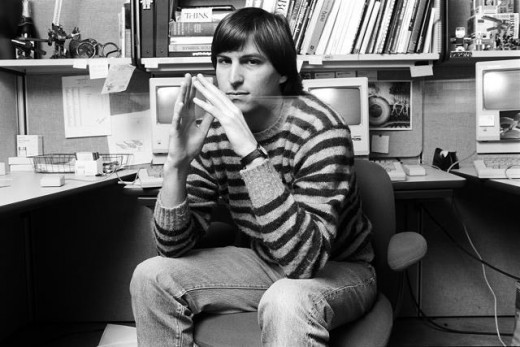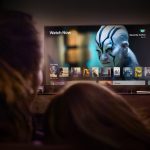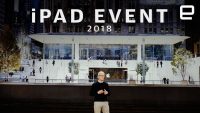“A Monk Without Empathy”: What Alex Gibney Learned While Making His Steve Jobs Film
The new doc Steve Jobs: The Man in the Machine is in theaters and on-demand today. What does it mean for the Valley legend’s legacy?
There’s a moment at the end of director Alex Gibney’s new documentary Steve Jobs: The Man in the Machine that presents the audience with a blank iPhone screen. The glossy, black surface reflects an image of Jobs that slowly morphs into an image of Gibney—a stylistic nod to Gibney’s thesis for the doc: We’ve all become the men and women in the machine.
It’s a daunting feat to write or shoot anything about Jobs. Walter Isaacson’s extensive 2011 biography Steve Jobs was followed up four years later by Rick Tetzeli and Brent Schlender’s book, Becoming Steve Jobs—not to mention films like Jobs starring Ashton Kutcher, director Danny Boyle’s upcoming Steve Jobs, and a list of other documentaries detailing the life of one of Silicon Valley’s greatest, most complicated heroes.
Gibney, who has made several highly praised docs, has managed to carve a sizable space for himself in the canon of Jobs chronicles, painting the background of his narrative with the “bold, brilliant, brutal” man we’ve come to know while fleshing out the portrait with his own creative process and surprising detours. The result is a nuanced chronicling of Jobs and, effectively, of Apple customers like you and me.
Off On The Wrong Foot
“When I started the film, the first person I reached out to was Laurene Jobs and it seemed like she was going to talk or at least we were going to engage her in conversation, and then it shut down. And I heard later she actually reached out to a lot of people and asked them not to talk to me, which created a certain number of problems. But at the end of the day, one of the interesting things about being shut down both by Laurene and also by Apple was that it propelled me into odder angles that I might not have pursued otherwise.”
Embracing Roadblocks
“Sometimes when there are roadblocks put in your way, you find a more interesting path and so it became part of the journey to find out who would talk to us, which led us to people we otherwise might not have talked to and Bob Belleville [director of engineering, MacIntosh, from 1982-1985] is a classic example. We reached out to him in part because he was a character we discovered who spent a lot of time with Steve in Japan. But we didn’t know until we hung out with him how deeply he had been affected by that whole experience. I think sometimes when you get turned down, it takes you to interesting places.”
The Texture Of Film Vs. Print
“You can do things in print that you really can’t in film—that is to say you can get into the forensic detail of stuff. In film, you have to go at it in a very different way. If you go back to that deposition of Jobs, it’s true you could have read that entire deposition in Forbes magazine but you wouldn’t have seen the kind of vicious, sarcastic contempt that Steve had for the SEC examiners. One of my favorite moments is when the SEC person is asking him, ‘So what did you do next?’ And he says, ‘Well, next I was on a search committee to find a new CEO.’ And the SEC guy says, ‘How did that go?’ And he looks at him, eyes dim with contempt and sarcasm and says, ‘I failed.’ That’s the stuff that on film tells you more than you could ever write down in a book.”
“A Monk Without Empathy”
“A lot of Zen Buddhists in Japan essentially made peace with Jobs and his fascism. If you dig deeply into Buddhism, it doesn’t take you into cruelty, necessarily, but it can if you take certain aspects and ignore the rest. He really did think that by making products that were really beautiful, really good, and really attractive to people that he was changing the world. Maybe that’s an aspect of Zen he embraced, that if you focus on one thing, do that well, that’s all—everything else is bullshit. He said it straightforward: Giving my money away is a waste of time. He felt his focus was to make great products but it was the focus of a monk without the empathy. His job was to make great products—fuck everything else.”
Finding Peace In Japan
“It’s a funny thing about Japan, Steve seemed to let down his guard a bit—he wasn’t quite as imperious in Japan as he could be elsewhere. That was an angle to the story that nobody else was particularly interested in. There was something about going there that made it easier for him to have relationships with people.”
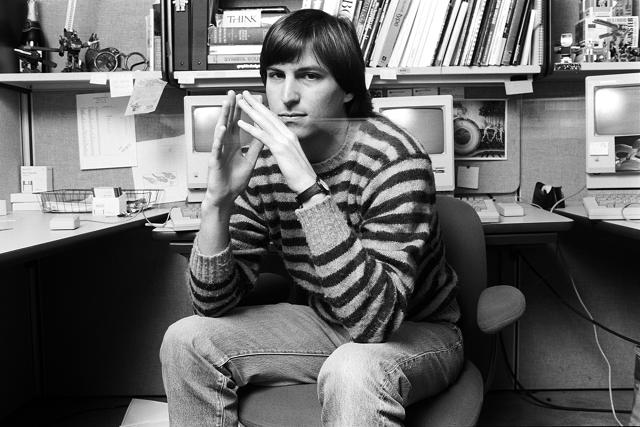
Steve’s Values
“There’s a question that other people have asked me, which is ‘Had he been alive, what question would I ask him?’ If I had an opportunity to ask Steve Jobs one question, it would’ve been ‘What are your values?’ It’s a question which revolves around a lot of what he says in the movie over and over again, he keeps talking about the values of Apple. The Gizmodo story [where they leaked images of the iPhone 4] in the history of Apple is not a very significant story but it’s significant in terms of Steve’s values. In that Walt Mossberg/Kara Swisher video, they’re asking him about the Gizmodo story and instead of just saying, ‘Yeah, well whatever,’ he was still rip-shit over that. A moment very late in his life when he’s dying, he takes all this time out to dig back at those Gizmodo people again?”
The God Of Silicon Valley
“It’s too easy to say Steve Jobs was a dick—there’s much about him that should be admired. But that doesn’t mean he deserves a beatification. Particularly because in Silicon Valley, Steve Jobs has become such a big god that everything he did suddenly becomes what you should do. So if Steve was cruel to people, you should be cruel to people—that’s the key to success! But the film is not a slam—the film is a meditation on this guy’s life and what it meant to us.”
The Golden Apple
“I went out of the way in the Scientology film [Going Clear] and also in the Steve Jobs film not to try to vilify anyone at Apple but to point some things out. One of the things I learned, and Larry [Wright] talked a lot about this in his book [Going Clear: Scientology, Hollywood, and the Prison of Belief], is the idea of the prison of belief. Some people get imprisoned by the need to believe in something so fervently that they’re not willing to accept that there may be flaws.
If you look, to some extent, the way Apple has reacted to this film and also the way Scientology reacted to Going Clear, it’s all about trying to assure the faithful: We’ve got your back. Apple is all good. Don’t pay any attention to that man behind the curtain. There is this passion for the person and the products that is so deep that any criticism can’t be tolerated. Why should that be? Can’t we discuss how pitifully paid are the workers in China and how badly treated is the environment there even as we may admire some of the technological aspects of the Apple products?”
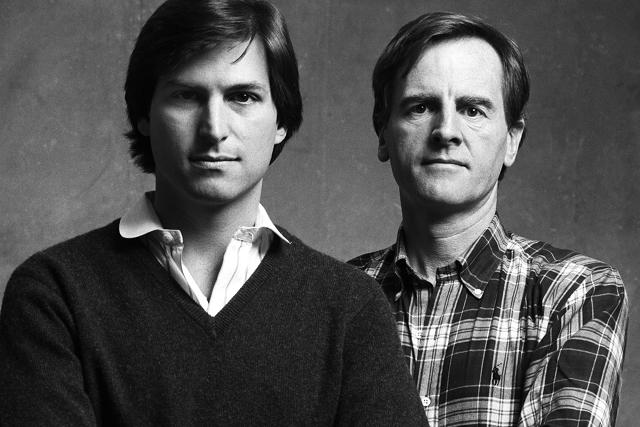
It’s Personal
“We have become part computers and the computers have become part of us and Jobs was very smart about understanding how to make a computer personal. The iPod really was the smartest one of all because that was the one that made you think of the machine not as being a machine that would play songs, but that would be an extension of you. The fact that he’s gone is still upsetting because there’s nobody around that still speaks to that. I think Steve Jobs’s great talent was as a storyteller. It’s discomforting that he’s gone and won’t be able to tell us those stories.”
Living In The Machine
“In a way it ended up being not just about Steve Jobs, but also about us. The way the Jobs film ends, there’s no prescription there. It’s actually asking a question: How do we all think about what our relationship is with these devices and how does it reflect Steve’s relationship with the company and the people he came across?”
Fast Company , Read Full Story
(171)

